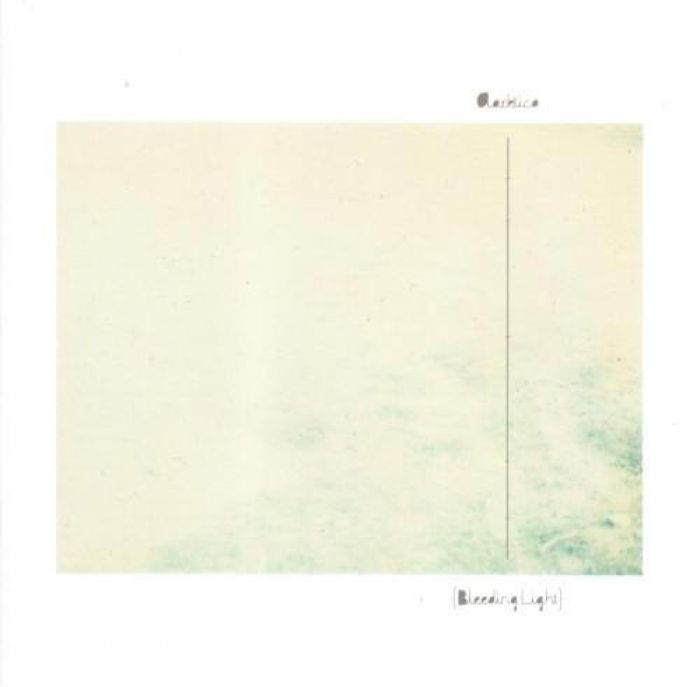Bleeding Light by Aarktica (Review)

A few days ago, I was working on my computer around two in the morning. Suddenly, I realized that I could hear a faint yet noticeable hum in the background. I never figured out where it came from, whether it was the power lines outside our house, some electronic equipment in my roommate’s bedroom that hadn’t been turned off, my computer, or something else. At first, it seemed fairly innocuous and I just ignored it. However, it continued to undulate and pulse in the background, and rather than become annoying, it slowly became ominous and harrowing.
Next thing I knew, I was half-convinced that some alien craft was hovering just above the trees on our boulevard, lurking and watching me. Admittedly, I was fairly sleep-deprived by then, but when the sound eventually faded away, I felt a noticeable sense of relief.
Such is the power of drones.
This is something that Jon DeRosa has realized, and has been harnessing and manipulating for years now. Bleeding Light, his fourth full-length under the Aarktica moniker, continues his exploration. Ostensibly, the album is about the feelings of alienation and loneliness conjured up by large urban spaces (specifically New York). And as my aforementioned experience reminded me, drones are perfectly suited for this sort of thing. They can easily conjure up intense feelings of anxiety and nervousness, their subtly wavering sonics easily playing with your subconscious mind, awakening thoughts and impressions that you’re unsure as to whether they’re real or not.
Now, I suppose a slight disclaimer is in place. Those expecting a full-on return to the massive, glacial soundscapes of Aarktica’s first album, No Solace In Sleep, might be somewhat disappointed. And I’ll admit that I sometimes fall into that category. Since his debut, DeRosa has worked hard to integrate his guitar drones and atmospherics into a more song-oriented structure, with varying degrees of success. When it succeeds, the results are superb, and when it doesn’t, it really doesn’t.
Bleeding Light is strongest when DeRosa sits back and lets his sounds do what they do best — drawing the listener in, surrounding them, and affecting them. “Depression Modern” opens the album with the sounds of bells tolling in slow motion, immediately casting the disc in a funereal glow, as low-level static, gasping horns, and DeRosa’s dry vocals drift between the tones.
“Night Fell, Broke Itself” and “A Shadow Knife (Draws The Bleeding Light)” are two of the more successful instrumental tracks on the album, the latter bordering a little too closely on Hood’s territory (think The Cycle of Days and Seasons rather than Cold House) but easily standing up to the best that Leeds’ finest has put to tape.
However, Aarktica’s Achilles’ Heel continues to be DeRosa’s voice. Its dry, laconic timbre is much better suited for Pale Horse and Rider, DeRosa’s darkly tongue-in-cheek country-western project. But it often juts out a bit too much from Aarktic’s music on tracks such as “OJ Gude” and “A Wash A Sea Goodbye It’s Me” (which eschews the drone aesthetic altogether). When his voice is slightly affected, such as with the ghostly moans and whispers that drift through “Twilight Insects“ ‘ ocean-like depths, the result is much more effective, emphasizing the music’s harrowing aspects.
Although the album is built around the structures of Indian raga music, those distinctive sounds only really become noticeable on the album’s closer, the “epic” title track. Over the lulling, hypnotic strains of the tambura, tempered only slightly by sparse piano notes and distant percussion, DeRosa intones “Everyone of us is lost in our own way.” And the fact that his voice sounds as if it’s constantly on the verge of being swallowed up by the tambura’s drones while singing those lyrics serves only to underscore the album’s themes of isolation and lostness.